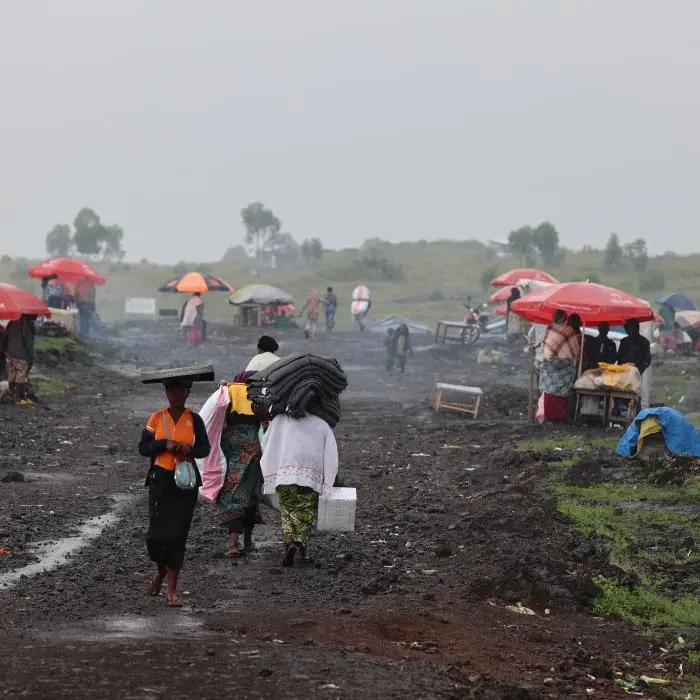The Democratic Republic of Congo (DRC) is facing a dire situation in early 2025, marked by escalating conflict, widespread displacement, and a severe humanitarian crisis. The resurgence of the M23 rebel group, allegedly backed by Rwanda, has led to the capture of Goma, a key regional hub, and intensified fighting in the Kivu regions. This escalation has not only caused immense human suffering but also triggered political instability and diplomatic tensions, both within the DRC and in the broader East African region.
The UN Secretary-General has made a fervent appeal for peace, emphasizing the urgent need for mediation and de-escalation. Antonio Guterres highlighted the devastating human toll of the conflict, with thousands killed and hundreds of thousands displaced. He stressed that there is no military solution to the crisis and called on all parties to honor their commitments to the Peace, Security and Cooperation Framework for the DRC and the region.
The recent surge in violence can be traced back to the resurgence of the M23 rebel group, which has been vying for territory and control of valuable natural resources in eastern DRC since the late 1990s. The M23 asserts that it is fighting to protect the rights of Tutsis in the DRC, but critics argue that the group is actively capturing land and mines, committing human rights abuses, and exacerbating the displacement of civilians.
Rwanda’s alleged support for the M23 has further complicated the conflict. The UN, the DRC, and other nations have accused Rwanda of financing and arming the rebels, allegations that Kigali has consistently denied. However, reports indicate that Rwanda has provided significant military support to the M23, including ground troops, which has fueled the group’s offensive in eastern DRC. Rwanda, in turn, accuses the DRC of collaborating with the Democratic Forces for the Liberation of Rwanda (FDLR), a Hutu armed group with ties to the perpetrators of the 1994 Rwandan genocide, an allegation the DRC rejects.
The capture of Goma by the M23 in late January 2025 marked a significant escalation of the conflict. The city, a major regional hub with a population of two million, fell after days of intense fighting, leading to the displacement of over 400,000 people. The M23 has since continued its offensive, capturing additional towns and threatening to advance towards Bukavu, the capital of South Kivu.
The escalating violence has triggered a wave of protests and riots in Kinshasa, the Congolese capital. Demonstrators have expressed anger at the international community’s perceived failure to intervene in the conflict and have specifically targeted nations perceived as supporting Rwanda. Protesters have attacked diplomatic facilities of France, Rwanda, and Belgium, and have engaged in direct confrontations with security forces.
The humanitarian situation in the DRC is dire. The conflict has displaced hundreds of thousands of people, many of whom are living in precarious conditions with limited access to food, water, and medical care. The UN estimates that millions of Congolese are in need of urgent medical, food, and other assistance. The World Health Organization (WHO) has reported that thousands have been killed or injured in the recent fighting, and health care facilities are overwhelmed.
In response to the escalating crisis, regional and international efforts have been launched to find a peaceful resolution. Leaders from the Southern African Development Community (SADC) and the East African Community (EAC) convened in Tanzania to explore avenues for re-establishing peace in eastern DRC. The African Union is also addressing the conflict at a meeting of foreign ministers in Ethiopia. However, these efforts have so far failed to yield a breakthrough, and the fighting continues.
The path forward is fraught with challenges. Distrust and animosity between the DRC and Rwanda remain deep-seated, and there is no easy solution to the complex political and security dynamics in eastern DRC. However, analysts and international officials agree that a non-military resolution is essential to ending the conflict and preventing further suffering. This will require inclusive dialogue, a commitment to addressing the root causes of the conflict, and a concerted effort to hold accountable those responsible for human rights abuses. The UN Secretary-General’s appeal for peace serves as a reminder that the international community must redouble its efforts to support the DRC in its quest for lasting peace and stability.

